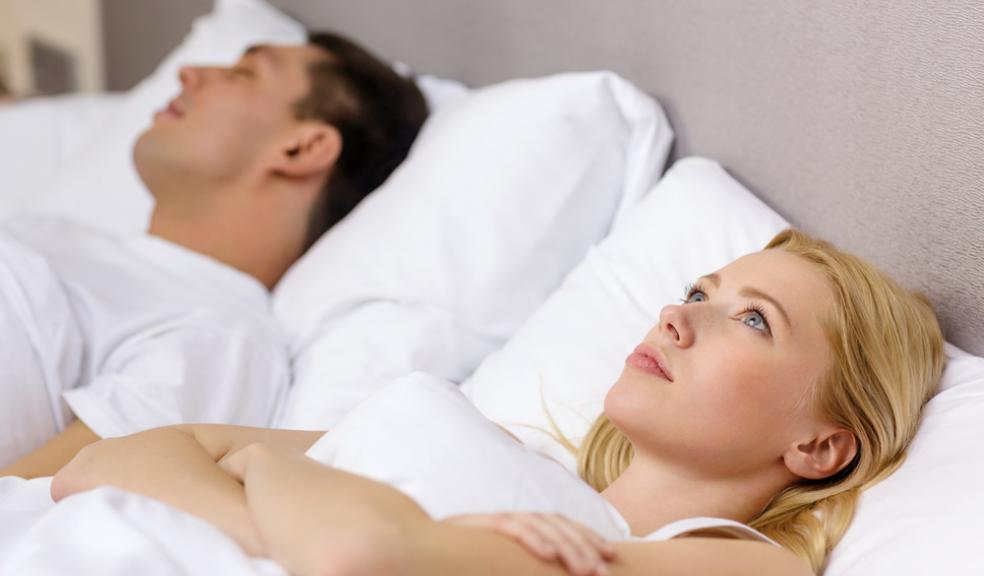
Sleep deprived South West struggles to #SleepHappy
The clocks sprung forward this weekend, resulting in the loss of another precious hour of sleep.
But it’s not just one hour of sleep that we’re losing. A new sleep study from New Febreze Sleep Serenity shows that on at least three different nights each week, the average person in the South West loses one hour and 48 minutes of shut eye while struggling to nod off – that’s five hours and 17 minutes each week or just over 11 days each year. Almost nine in ten people (88%) have nights of disturbed sleep with more than a third saying they rarely have a full night’s sleep.
The effect of this lost sleep is visibly noticeable, with over half (58%) of people in the region stating that people say they look tired or like they’re struggling the morning after a bad night’s sleep.
The research revealed stress, bad dreams and partner’s snoring were among the top 10 reasons for a disturbed night sleep. Sunday was identified as the night when people in the South West are all most likely to find themselves tossing and turning, worried about the working week ahead
Top 10 reasons for disturbed sleep in the South West
1. Needing to go to the toilet
2. Stress/anxiety
3. Being too hot
4. Bad dreams
5. Partner’s snoring
6. Being too cold
7. Health problems
8. Money worries
9. Children crying
10. Work issues
Leading UK sleep expert Dr Guy Meadows, comments: "“For people in the South West, the continuous struggle with sleep peaks on a Sunday night. Largely it’s due to us going to bed late on a Saturday night, and sleeping in too long the next day. What people may not realise is that this resets your body clock, the part of your brain that tells you when to sleep, telling it to go to bed later the next night. You also need 16-17 hours of wakefulness in order to get to sleep, which doesn’t happen it you get up late.”
Dr Guy continues: “So, however hard it may feel, it’s important to wake-up and face the day as early as you can after a late Saturday night to help you fall asleep quickly and stay asleep, ready to start the week full of energy.”
Lack of sleep is a big problem for people in the South West of England, with almost two thirds (62%) going through periods of worry that they’ll never get to sleep again.
Londoners were found to be most likely to wake up in a bad mood after a bad night’s sleep (79%), closely followed by people from Yorkshire (76%), the East Midlands (74%) and South West (69%).
Lack of sleep isn’t just affecting mood, it’s also affecting productivity, with over three quarters (84%) of people in the region struggling to concentrate at work after a night of tossing and turning. One in six (16%) of people in the South West have been pulled up on their tiredness-induced poor work by their boss, while a fifth (20%) admit to making mistakes at work. One in ten (12%) have snapped at a colleague and 12% have fallen asleep at their desk. Others may not even make it to the office, with one in ten (10%) nodding off on the commute. It’s also a bad week for tardiness, as 5% of people in the South West admit to having been late for work on the Monday following the clock-change.
Other negative effects from lack of shut-eye were listed by people in the region as snapping at their partners (37%), oversleeping (30%) crying (21%), and tripping over (12%).
The South West’s current bedtime routines involve watching TV (48%), checking social media (32%) and reading emails (8%). But with the city losing 2 years of their life struggling to sleep , the research suggests these nightly rituals are not promoting a peaceful night’s sleep, particularly for the 11% who admit to gaming in bed.
The research is released in line with the launch of New Febreze Sleep Serenity, the first range of products designed by Febreze to create a relaxing bedtime environment.
Anastasia Roumelioti, Home Care Communications for New Febreze Sleep Serenity comments:
“The research highlights that lack of sleep is a problem for people in the South West. Creating the appropriate ambience in a bedroom is the first step to a relaxed mood to aid sleep. Febreze Sleep Serenity contains fragrances, such as lavender, that have been expertly selected to create a soothing environment to promote a good night’s sleep so we can sleep happy and start recovering the 11 days lost each year struggling to sleep.”
Dr Guy continues: “Loss of sleep is having clear negative affects to many people in the region. Creating a relaxing bedroom environment is a great way to help people prepare for a night of undisturbed sleep. This can include removing distractions, ensuring a room is dark, quiet, comfortable and a cool temperature. Certain fragrances can have a powerful impact on our senses and a calming effect on the body, which is why scent can have a role in creating a relaxing bedtime environment.
Febreze worked with Dr Guy Meadows to identify different sleep typologies that the UK population fall into. These can be found by visiting www.supersavvyme.co.uk and filling out a short quiz. Once you’ve identify which of three core sleep types you fit into, you will be able to access tips from Dr Guy Meadows for how you can adjust your nightime routine to #sleephappy.













